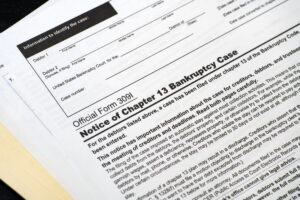If you are thinking about bankruptcy and own a home or any other real estate, you should make sure you understand what exemptions are and how they affect what property you can keep.
When you file bankruptcy, you must list all of your assets. They will either be listed as “exempt” or “non-exempt”. The bankruptcy trustee cannot touch exempt property. Exempt property will still be yours after your case is closed. However, in a Chapter 7 bankruptcy the trustee can take non-exempt property and sell it if necessary to distribute the proceeds to your creditors.
The exemption that protects equity in your home is called the “homestead exemption” in Colorado. Colorado Revised Statute 38-41-201 outlines the homestead exemption and states:
1) Every homestead in the state of Colorado shall be exempt from execution and attachment arising from any debt, contract, or civil obligation not exceeding in actual cash value in excess of any liens or encumbrances on the homesteaded property in existence at the time of any levy of execution thereon:
(a) The sum of sixty thousand dollars if the homestead is occupied as a home by an owner thereof or an owner’s family; or
(b) The sum of ninety thousand dollars if the homestead is occupied as a home by an elderly or disabled owner, an elderly or disabled spouse of an owner, or an elderly or disabled dependent of an owner.
(2) As used in this section, unless the context otherwise requires:
(a) “Disabled owner”, “disabled spouse”, or “disabled dependent” means an owner, spouse, or dependent who has a physical or mental impairment that is disabling and that, because of other factors such as age, training, experience, or social setting, substantially precludes the owner, spouse, or dependent from engaging in a useful occupation, as a homemaker, a wage earner, or a self-employed person in any employment that exists in the community and for which he or she has competence.
(b) “Elderly owner”, “elderly spouse”, or “elderly dependent” means an owner, spouse, or dependent who is sixty years of age or older.
What this means is that up to $75,000 ($105,000 if you are elderly or disabled under 38-41-201) in equity in your home is protected from the trustee. Say you are buying a home that has a current market value of $200,000, but you only owe your lender $175,000. That gives you $25,000 in equity. Since that is below the homestead exemption limit, your equity is protected. As long as you are current on your mortgage or can get caught up in a Chapter 13 bankruptcy, you should have no problem keeping your home.
If you have significantly more than $60,000 in equity in your home, the trustee may force you to sell the home. If so, you will receive $60,000 from the sale proceeds. If you are too far behind to be able to get caught up in Chapter 13, you might have to face the prospect of losing your home.
Keep in mind that you must be living in the home to use the homestead exemption. Colorado Revised Statute 38-41-203 states that the property “shall only be exempt … while occupied as a home by the owner thereof or his family.” That means that rental property or a second home/vacation property is probably not going to qualify for homestead exemption and will be considered a non-exempt asset. If there’s any equity to distribute to your creditors, the trustee will probably force a sale.
You should consider talking to a bankruptcy attorney about whether or not your home is protected by the homestead exemption. You don’t want to be caught off guard like the person I saw at a meeting of creditors recently who only learned that day that she would lose a cabin that had been in her family for generations. It was hard to tell who more surprised: her or her attorney.
If you have questions about your home and bankruptcy, we hope you’ll come in for a free, no-obligation consultation with an experienced lawyer. You can make an appointment by calling 303.331.3403 or by using our online scheduling system.


